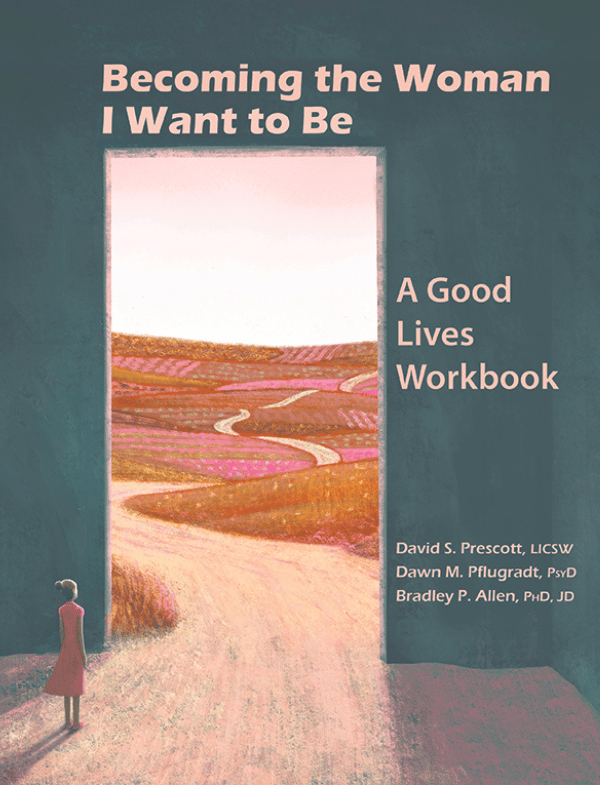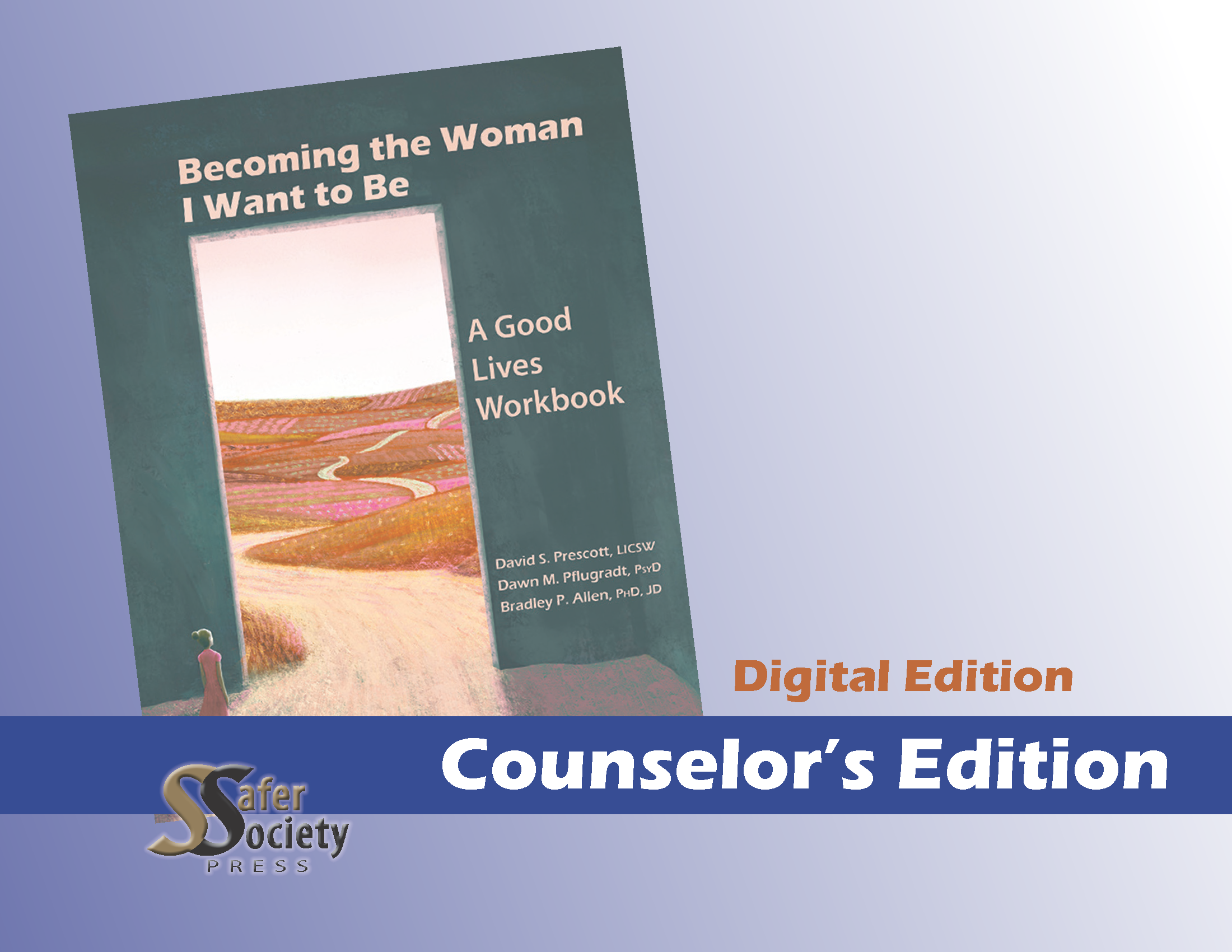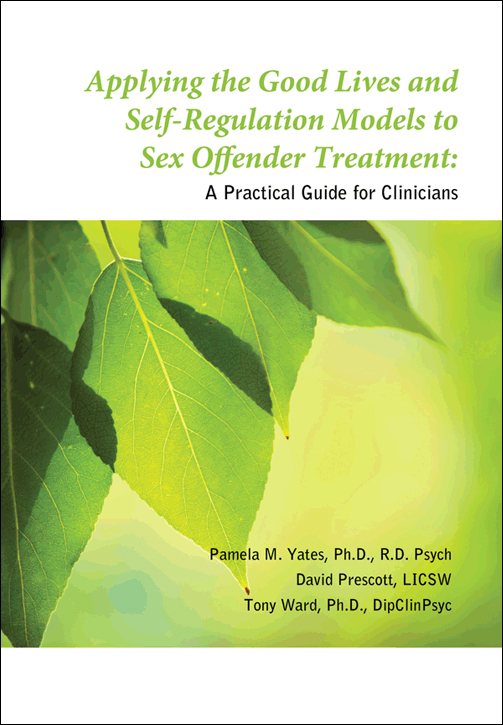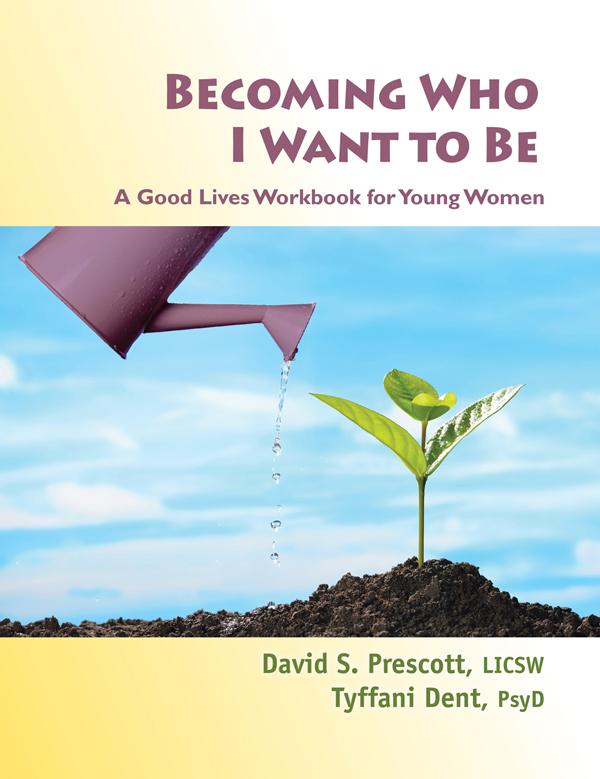Home / Shop / For Adult Clients / Workbooks for Adult Clients
Becoming the Woman I Want to Be

- Description
- Specifications
Becoming the Woman I Want to Be
A Good Lives Workbook
By David S. Prescott, LICSW; Dawn M. Pflugradt, PsyD; Bradley P. Allen, PhD, JD
Do you work with adult female clients that are:
- Using violence to solve personal problems?
- Struggling with their relationship to food and with body satisfaction?
- Abusing drugs to help them escape their responsibilities?
- Expressing their sexual desires in immature ways?
While some of these struggles are also faced by men, years of gender-responsive treatment have taught us that women face unique challenges and develop in unique ways. This calls for tools, like this workbook, that draw from our knowledge of which approaches can be more successful with women. We know, for example, that young women often display more conduct-disordered and antisocial behaviors than men. Also, what may be viewed as minor delinquent acts in girls may serve as a way for them to better cope with familial, peer, trauma, and other societal issues.
A Good Lives Model Approach
Like many strengths-based models of helping, the Good Lives Model (GLM) of rehabilitation is an approach that focuses the conversation between professionals and clients not on what is wrong with the clients but rather on building the clients’ understanding of what they want their lives to become.
The model helps clients focus on eight “good life goals.” These goals guide clients toward leading a self-determined lifestyle—one in which illegal behavior is viewed as undesirable and unnecessary.
What Are “Good Life Goals”?
The GLM takes its cue from many humanistic perspectives, all of which posit that all humans have similar goals: we seek to make our lives better. Some of those goals are:
- Having a purpose in life
- Enjoying life, having fun
- Connecting with other people
- Being physically healthy
In the GLM approach, the therapist and client explore how the client is currently pursuing these good life goals. Through these conversations, healthy—and unhealthy—ways of achieving the goals are uncovered. For example, one client might pursue the goal of “connecting with other people” by joining a gang. Instead of unhealthy routes such as this one, therapists and clients explore how this universal desire to connect with others can be achieved in the client’s life in healthy ways—ways that don’t include violence or substance abuse, and don’t lead to incarceration.
What Are the GLM Workbooks?
These workbooks are intended for use with adult women with a wide range of problem behaviors in a wide range of areas. The workbooks can be used in both group and individual counseling modalities.
Built on the framework originated by David Prescott in Becoming the Man I Want to Be, the Becoming the Woman I Want to Be workbook has been adapted by Dawn Pflugradt and Bradley Allen, two leading experts in the treatment of adult women. They've given the workbook language and scenarios that speak directly to women while retaining the straightforward approach originated by Prescott.
With Becoming the Woman I Want to Be, each of your clients will:
- Reflect on things important to her.
- Understand the methods she used to obtain these things in the past and plan how she will get them in healthier ways in the future.
- Learn to recognize the obstacles that have kept her from living a healthier life.
- Develop a plan for overcoming obstacles and becoming the person she wants to be.
- Put her plan to work in his daily life.
The overriding message is that counseling is a way to a better, healthier life.
Inside each workbook, you’ll find:
- Eight “good life goals” that will form the framework of a new healthy way of living.
- One chapter for each of the eight good life goals—14 chapters in all.
- Concepts expressed in simple language.
- Colorful illustrations that connect clients to realistic case stories.
Click here to review Chapter 1 of this workbook.
About the Authors
David Prescott, MSW, LICSW, is a current fellow and past president of ATSA. He is also the 2014 recipient of that organization’s Distinguished Contribution award, one of only a handful of recipients. Previously, he received the Bright Lights award from the National Adolescent Perpetration Network in 2007; he has since become a member of that organization’s board of elders. David is currently the Director of Continuing Education with Safer Society Foundation.
Dawn Pflugradt, Psy.D., is a licensed psychologist with advanced degrees in psychology, social work and bioethics. She works in the area of sex offender assessment and treatment and is an associate professor at the Wisconsin School of Professional Psychology where she teaches courses in developmental psychology, personality disorders, and ethics. In addition to her years of clinical experience, Dr. Pflugradt has published numerous articles and book chapters in the areas of pediatrics and sex offender assessment and treatment. Dr. Pflugradt also is a certified trainer for the STATIC-99R and STABLE-2007.
Brad Allen, Ph.D., J.D. is a licensed psychologist with advanced degrees in psychology, sociology, law and epidemiology. In addition to having extensive experience in the treatment and assessment of sex offenders, he has an eclectic research background publishing in the areas of developmental disabilities, gerontology and sex offenders.
ISBN: 978-1-940234-37-3
Paper | 129 pages
Price: $29
Order #: WP233



